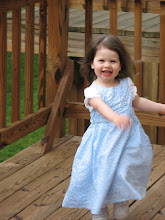In Cold Blood by Truman Capote. I must say I found the book most fascinating. Anyone who cringes at murder mysteries or true crime might consider reading something else instead. But as the book that helped begin a new genre, namely that of the nonfiction novel, it is an American work worth reading.
The book is divided into four parts – the events leading up to the murder, the many questions surrounding the murder, answers to those questions, and finally the execution of the criminals.
The first part is rather heart wrenching. The reader learns about the members of the Clutter family – Herb, Bonnie, Nancy and Kenyan – beginning on Friday, November 13, 1959. Herb is a hard working farmer who has earned all he has and is very considerate of his workers and protective of his family. His wife, Bonnie has struggled with depression and not been well in a number of years. Nancy, his daughter is among the most popular girl in the town, the best cherry pie maker for miles and very accomplished playing musical instruments and excelling in school. Kenyan, his son excels at carpentry and invention. The family has a normal Saturday until around midnight that night when Perry Smith and Dick Hickock arrive at the home. You don’t know exactly what happens, but you know the family you have come to know and understand is now gone with the shells of four gunshots.
The second part follows the path of Perry and Dick while pursuing the investigation with Kansas Bureau of Investigation agent Alvin Dewey. Perry and Dick collect several hundred dollars cashing bad checks in
The third part focuses on the confession of Dick and Perry as they recall the events of that terrible November night. They entered the house easily through the always unlocked door, cut the phone line and woke Herb Clutter. At gunpoint they demanded he go to and open his safe which they insisted had at least $10,000. Herb, who always did everything by check and never carried much cash tried repeatedly to inform them of this. Upon hearing a noise upstairs, they move Mr. Clutter upstairs and search his wife’s room for any money. Next they collect Kenyan and Nancy. They tie up Bonnie and Nancy in their own beds and tie Kenyan up in the basement den. After searching the house extensively and realizing they had been very misinformed, they take Mr. Clutter to the boiler room in the basement. Herb offers to write them a check but they refuse. They bind Herb on a piece of cardboard on the floor and consider just leaving. Perry realizes that for all his talk, Dick is a coward and his anger towards Dick, his own mother and father and brother and sisters and anyone else in his life erupts. Perry takes a knife and cuts Herb’s throat and then takes Dick’s shotgun and shoots Mr. Clutter. Perry, who had only earlier put a pillow under Kenyan’s head to make him more comfortable, shoots him in the side of the head. He then runs upstairs and against
The fourth and final part relays a brief trial and sentencing. Both men had confessed and lead authorities to the remaining tape and rope they had buried. The options for the jury are life in prison with possibility of parole in 7 years or death. Both defendants receive the death penalty. Capote follows the next 5 years of appeals and goes over some background of the two men. Dick’s family was relatively normal although he had struggled with the law for some years. Perry’s background was difficult. His father and mother had split when he was young and his mother went drunk from man to man all the while keeping her children from Perry’s father until she died choking on her own vomit. His sister had either fallen or leapt drunk from a hotel window. His brother had committed suicide and his only remaining sister refused to see him and didn’t want her whereabouts known to him for fear of him. He had spent some years of his youth in an orphanage where he says the nuns beat him for wetting the bed. He had self-educated himself beyond the third grade but struggled working due to permanent injury of his legs from a motorcycle accident. On Wednesday, April 14, 1965, between 12 and 2 am, Dick Hickock and Perry Smith were hanged.
The Clutter family is the most unfortunate victim. They were a Church-going family who upheld principles of family values and contributed to their community. Perry and Dick are the most unscrupulous criminals. They show no remorse for their crime, only getting caught. Perry said, “I didn't have anything against them, and they never did anything wrong to me--the way other people have all my life. Maybe they're just the ones who had to pay for it.” It is a book about the most senseless of crimes. Four innocent upstanding citizens were brutally murdered for forty to fifty dollars, a radio, a pair of binoculars and the tempers of two men consumed with their own egos and hate for a world they felt owed them something. Perry seems the more unfortunate of the two villains, but no amount of background can excuse him or humanize him to the point of understanding.
The book is written in a novel form but using documents, recorded interviews or personal observation to record everything as fact. It is like reading a dramatized documentary and as a book form is quite unique. It also makes the reader reflect on the simple, happy small town
I find it a fascinating addition to any repertoire as a first in a unique genre and recommend anyone capable of reading it sitting down and giving it a run through.



No comments:
Post a Comment